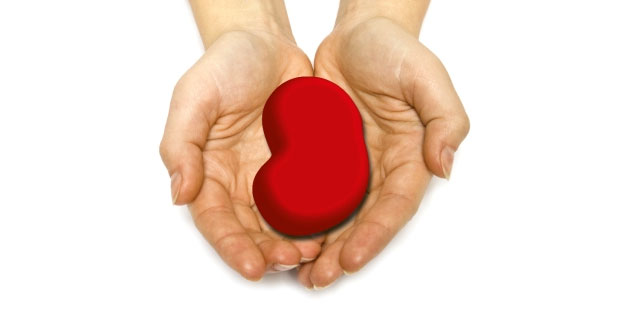Essential functions of the kidneys are removing waste products from the blood and regulating the water fluid levels. Kidney failure refers to loss of kidney function.
Kidney failure (or renal failure)
- Temporary
- Permanent.
When kidneys fail suddenly, it is called acute kidney failure, and in most cases is only temporary.
Permanent, or chronic, renal failure usually progresses slowly and is the most common type of kidney damage requiring dialysis or kidney transplantation
Complete and irreversible kidney failure is sometimes called end-stage renal disease, or ESRD
People with end-stage renal disease (ESRD) need dialysis or transplantation to replace the work of the kidneys. Otherwise the body retains extra fluid and harmful wastes products.
Most kidney diseases attack both kidneys simultaneously.
Causes of kidney failure
- Diabetes
- High blood pressure (Hypertension)
- Chronic infection of the kidneys
- Obstruction of the kidney by stones
Signs and symptoms of kidney disease
- Early stages of kidney disease may be asymptomatic.
- Less urination
- Feeling tired and body itching
- Loss appetite
- Nausea and vomiting
- Swelling of feet and face
- Feeling drowsy and unable to concentrate
- Darkening of skin and muscle cramps
Investigations
- History and physical examination,
- Blood pressure measurement,
- urine protein level,
- serum creatinine level and creatinine clearance are some important tests.
- Ultrasound of the kidneys and kidney biopsy may be necessary.
Treatment
Dialysis. There 2 types of dialysis,
1. Hemodialysis: In this your blood is passed through the filter that removes the bodies waste product. The clean blood is returned to your body. Hemodialysis is usually performed at a dialysis center usually for three times per week for 3 to 4 hours.
2. Peritoneal dialysis: In this a fluid is put into your abdomen. After a few hours, the fluid containing your body’s wastes is drained away. Patients can perform peritoneal dialysis themselves. Patients using continuous ambulatory peritoneal dialysis (CAPD) change fluid four times a day.
Kidney Transplantation. A donated kidney may come from
- Cadaver (recently died patient)
- Brain dead patient
- Living relative
The kidney that you receive must be a good match for your body. Your immune system will try to reject it as it is a foreign tissue. So you will have to take special drugs for life to suppress your immune system so it does not reject the transplanted kidney.
 Urologist in Chennai | Robotic Urologist in India | Chennai Urology
Urologist in Chennai | Robotic Urologist in India | Chennai Urology

